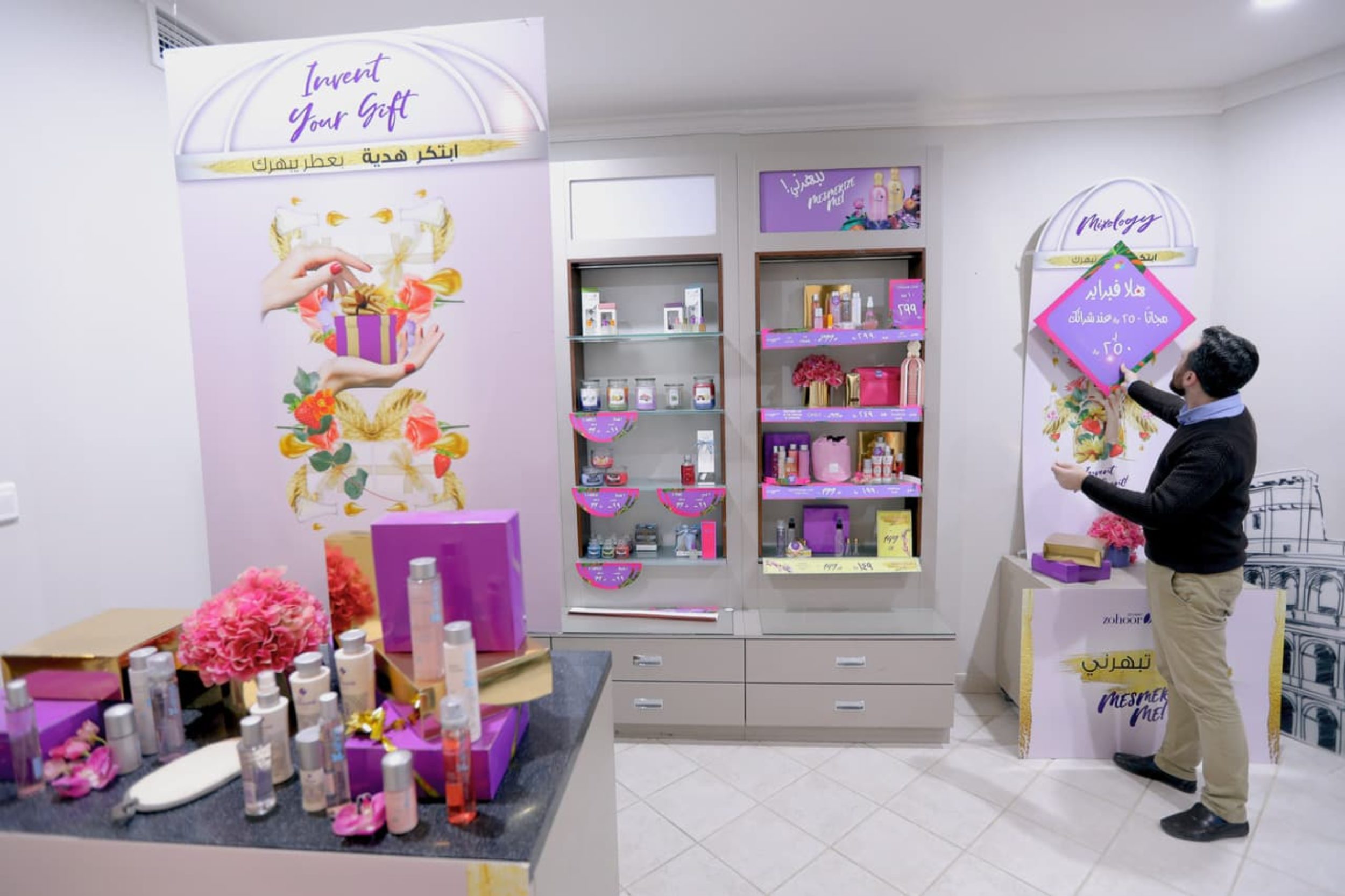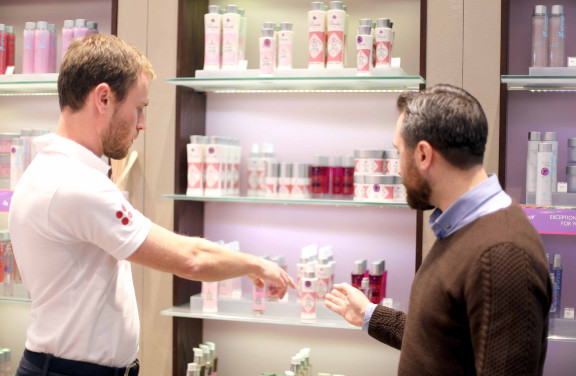Zohoor Alreef was established in 1991 by Waleed and Faisal Alkhaldi as a purveyor of high quality perfumes that quickly established a strong reputation in the GCC region. From small beginnings, but based on good quality products, the business grew and today there are over 250 stores across the GCC that supply a wide range of body care products, perfumes/ mixology, signature perfumes, home fragrances and accessories. In addition, since 2001, Zohoor Alreef has a dedicated research and production facility in France sourcing and producing high quality ingredients for its products.
Despite 25 years of success, things had changed significantly for Zohoor Alreef. Retail market conditions in Saudi Arabia and across the GCC had become extremely challenging. In addition to the challenging market conditions, there were several other large-scale changes in the market, some driven by the customers and some driven by regulatory changes that meant a large scale change for Zohoor Alreef. Seeing an opportunity to remain dynamic amidst market changes, Zohoor Alreef opted for a complete shift in the way it had operated.
Established foreign brands moving in from abroad heightened competition. The company needed to keep pace with the dynamic customer base and ever-changing tastes. Customers also had heightened expectations in terms of in-store experience and service. In addition to the market and customer challenges, regulatory changes meant that a completely new workforce would be introduced into the stores.
Over 25 years, the company had grown organically. However, the processes and systems needed further development to match a fast-growing organization. The level of operational control in terms of detail information and operational standards was not sufficient for optimizing retail performance. Management and staff had operated in this environment for many years and had achieved successful results though this way of working would not be sufficient going forward. The change in mindset required to operate systematically according standards was therefore identified as a challenge. An external influence was needed to make them question the status quo and convince them that a new way of operating was needed to add value for the continued growth of the business.
The Four Principles expert team of implementation consultants first began by conducting a thorough analysis of the entire operation starting with the customer and then the stores and working backwards through the organization. This gave a complete picture of the strengths and weaknesses in quantified terms. It was also obvious that the Zohoor Alreef team had not been sleeping and had initiated many improvements themselves. However, the results of the analysis presented a puzzle for the team: no one area stood out as the deciding factor to improve performance of the stores. Lean thinking provided the answer: Kaizen means continuous improvement and striving for perfection. Naturally then, this would mean perfecting every aspect of store operation from product, to layout, to merchandising, to sales techniques right down to store cleanliness. The conclusion the team drew was simple: nothing but “perfect” stores in every aspect were required to remain competitive.
A store can only perform as well as the organization that supports it, so any planned improvement to the stores must be considered as part of an overall improvement approach. So, to begin, supported by the consultants, the senior team developed a clear Process Vision based on Lean Principles as a guide for all improvement activities. Based on the Process Vision, a detailed transformation plan was developed and quantified improvement targets were set for the planned improvements.
Quickly, the work then began on the “Perfect Store” project. Together with representatives of store staff and key stakeholders, a deep assessment of all aspects of store operation was conducted. Twenty-one individual aspects were identified, the problems with each mapped and impact on store operation estimated. Solutions approaches for each aspect were then identified as part of a holistic overall solution approach to the “Perfect Store”.
In groups, impacted staff and management worked together with the consultants from Four Principles using Lean methods to develop detailed solutions for each area of the Perfect Store. These ranged from store operating standards and training, to store layout and visual merchandizing, to product portfolio, to store replenishment, to sales techniques and incentives etc. Implementation tasks were then derived and assigned to staff so that the implementation at pilot stores could begin as quickly as possible.
At three pilot stores the physical changes were made to the layout and interior. The new store replenishment model for stock was also implemented in conjunction with the warehouse and IT team. In parallel, the store staff were then trained on the new operating standards. Then all of the solutions were tested and based on staff feedback the methods and standards refined. Once the implementation of the complete set of improvements was complete, the stores then piloted the new processes for several weeks supported hands on by consultants and key staff. The performance was closely monitored through regular management audits involving all levels right up to the CEO and Chairman. Customer feedback was also gathered. A set of target KPIs had been agreed and these were implemented through a KPI dashboard that was measured weekly. The sales performance of the pilot stores was benchmarked against a set of peer stores used as a control group for each.
The results in the pilot stores showed clearly that the improvements not only improved the in-store experience for the customers but also impacted store performance significantly. The “like for like” sales against peer stores increased by more than 8% and 15% respectively according to store type. The in-store inventory was reduced by over 30% while maintaining an availability of core items of over 99%. The detailed standards covering all aspects of store operations were consolidated in a set of SOPs as a standard store operating manual. Most importantly, this new way of working and mindset could be then rolled by using the pilot stores as the proof of concept for staff and through using the new operating standards as the basis for training.
Alongside the rollout of the new standards across the other stores, the results were then used by the team as the base set for the introduction of a Sales & Operations Planning (S&OP) Process. The S&OP process again followed the Process Vision that had been established by the senior team at the start of the improvements. Today, the entire Zohoor Al Reef team has understood through Lean that the “Perfect Store” is a shared aspiration that can only be achieved through Kaizen or continuous improvement.







